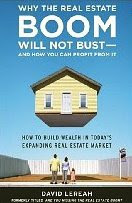For the first time in months, Gallup credits John McCain with a statistically insignificant lead over Barack Obama: 46% to 44%. However, this small growth of support for the Republican candidate - unexpected during a Democratic convention - has more to do with the falling of gas prices than with McCain's performances.
If one looks at another Gallup's poll, the one asking voters if they believe that "the economy is getting worse," the answer was "Yes" for 79% of the Republicans in June, while it is only 64% today. This is the real "bounce" of McCain in the polls: his largely skeptical base is seeing a modest ray of hope, entirely linked to the oil prices (felled from $147 a barrel to $112 in six weeks).
This is not the entire story, however. Democrats and Independents have a far more negative perception of the economy than the ideologically-driven Republicans. Eighty-six per cent of the Democrats and 81% of Independents think that the economy is going downhill and Gallup comments: "In this regard, it would appear Democrats are well-positioned to pick up independent support after their convention since both groups seem to share a great deal of pessimism about the future direction of the economy. However, this does not necessarily mean the majority of Americans will share the Democrats' enthusiasm about their proposals for reinvigorating the economy. For example, Americans generally share the Democrats' view that the "wealthy" do not pay enough in taxes.On the other hand, when given a choice about how government should address the numerous economic difficulties facing consumers today, 84% of Americans prefer that the government focus on improving overall economic conditions and jobs while only 13% prefer that the government respond by taking steps to distribute wealth more evenly. How Democrats end up balancing these two seemingly contradictory notions may play a significant role in how they fare this November."
Independents will favor Barack Obama, but only if he does something convincing to address the troubles of the economy on two fronts: gas prices at the pump and the mortgages catastrophe.
____
If one looks at another Gallup's poll, the one asking voters if they believe that "the economy is getting worse," the answer was "Yes" for 79% of the Republicans in June, while it is only 64% today. This is the real "bounce" of McCain in the polls: his largely skeptical base is seeing a modest ray of hope, entirely linked to the oil prices (felled from $147 a barrel to $112 in six weeks).
This is not the entire story, however. Democrats and Independents have a far more negative perception of the economy than the ideologically-driven Republicans. Eighty-six per cent of the Democrats and 81% of Independents think that the economy is going downhill and Gallup comments: "In this regard, it would appear Democrats are well-positioned to pick up independent support after their convention since both groups seem to share a great deal of pessimism about the future direction of the economy. However, this does not necessarily mean the majority of Americans will share the Democrats' enthusiasm about their proposals for reinvigorating the economy. For example, Americans generally share the Democrats' view that the "wealthy" do not pay enough in taxes.On the other hand, when given a choice about how government should address the numerous economic difficulties facing consumers today, 84% of Americans prefer that the government focus on improving overall economic conditions and jobs while only 13% prefer that the government respond by taking steps to distribute wealth more evenly. How Democrats end up balancing these two seemingly contradictory notions may play a significant role in how they fare this November."
Independents will favor Barack Obama, but only if he does something convincing to address the troubles of the economy on two fronts: gas prices at the pump and the mortgages catastrophe.
____












